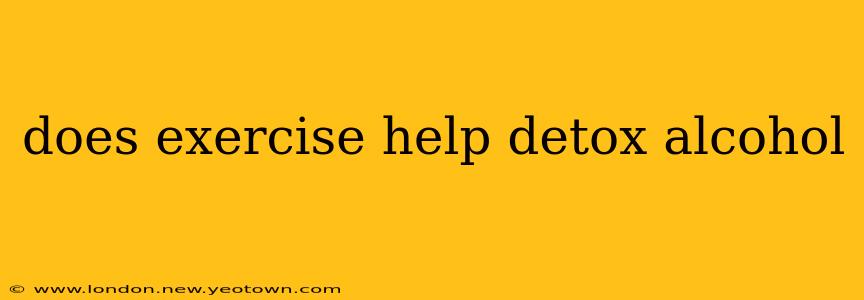Does Exercise Help Detox Alcohol? The Truth About Sweating It Out
The allure of a quick fix is strong, especially when it comes to the aftermath of a night of indulging. Many wonder: can a good workout help my body detox from alcohol faster? The short answer is a bit nuanced – it's not a direct detox, but exercise does play a beneficial role in recovery. Let's unravel the truth behind this common question.
Imagine this: You've had a few too many glasses of wine, and the morning after brings a pounding headache, nausea, and that overall feeling of being completely wiped out. You might think, "A sweat session will help!" While exercise won't magically remove the alcohol from your system, it can contribute positively to your recovery in several ways.
Does Exercise Speed Up Alcohol Metabolism?
No, exercise doesn't directly speed up the liver's processing of alcohol. Your liver works at its own pace, metabolizing alcohol at a relatively constant rate, regardless of how much you exercise. This is primarily determined by your body's metabolism and genetics.
How Does Exercise Help With Alcohol's Aftereffects?
While exercise doesn't directly detoxify alcohol, it indirectly assists recovery by addressing several symptoms:
-
Hydration: Alcohol is a diuretic, meaning it causes dehydration. Exercise, especially if you're sweating, can lead to dehydration if you don't replenish fluids. However, drinking plenty of water before, during, and after exercise helps combat dehydration caused by both alcohol and physical activity, alleviating symptoms like headache and fatigue.
-
Improved Blood Flow: Exercise improves circulation, helping to deliver oxygen and nutrients throughout your body. This increased blood flow can help your body repair itself after the stress of alcohol consumption, potentially reducing fatigue and speeding up the recovery process.
-
Mood Boost: Alcohol can significantly impact your mood, leading to anxiety and depression. Exercise releases endorphins, natural mood elevators, which can help alleviate some of these negative feelings associated with alcohol hangover.
-
Sleep Improvement: A good workout, especially if timed appropriately, can contribute to better sleep, an essential part of recovery. Alcohol disrupts sleep patterns, so improving sleep quality after alcohol consumption is important for overall well-being.
What About Sweating Out the Alcohol?
Many believe that sweating out alcohol is a viable detox method. However, the amount of alcohol expelled through sweat is negligible. The vast majority of alcohol is metabolized by the liver. While sweating does help with hydration, it won't significantly reduce the alcohol content in your bloodstream.
What's the Best Approach to Alcohol Recovery?
The most effective way to recover from alcohol consumption is to allow your body time to process the alcohol naturally. Hydration is key, so drink plenty of water. Rest is crucial for your body to repair itself. While exercise can be beneficial for overall recovery by addressing the side effects, it's essential to listen to your body and avoid strenuous activities if you're feeling unwell.
In conclusion, while exercise won't magically detoxify alcohol, it can significantly aid your recovery by improving hydration, boosting mood, and enhancing sleep. Remember, moderation is key when it comes to alcohol consumption, and a healthy lifestyle that includes regular exercise, a balanced diet, and adequate rest is always the best approach.

